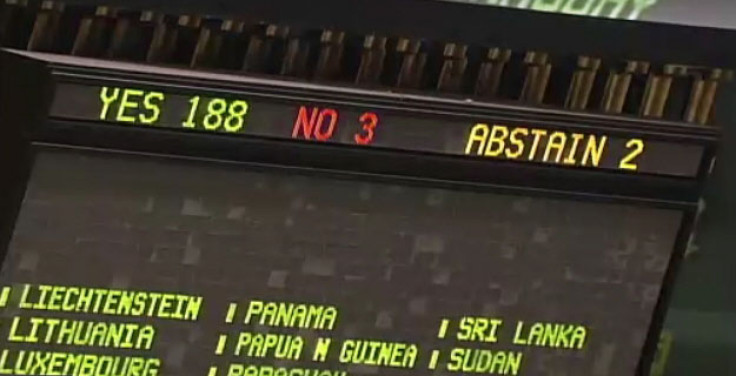UN Calls For End To US Embargo Of Cuba

The United Nations has called for an end to the U.S. embargo of Cuba that has been in place for over half a century.
For the 21st consecutive year, the U.N. General Assembly adopted a resolution opposing the embargo after 188 member states voted in favor of it.
There were three votes against it from the U.S., Israel and Palau, while two others, the Marshall Islands and the Federated States of Micronesia, abstained.
“The United States embargo continues to severely affect the day-to-day welfare of Cuban citizens,” read a June 2012 statement from the U.N. Economic Commission for Latin America and the Caribbean or CEPAL.
CEPAL said that the embargo has driven up medical, agricultural and manufacturing costs, as well as for infrastructure projects.
“All of this has had major adverse effects on all Cubans,” it added.
U.S. envoy Ronald Godard provided a brief comment on his country’s rejection of the resolution.
"This resolution only serves to distract from the real problems facing the Cuban people, and, therefore, my delegation will oppose it,” Godard said before the Assembly.
“We encourage this body to support the desires of the Cuban people to determine their own future freely. By doing so, it would truly advance the principles of the United Nations Charter and the purposes for which the United Nations was created."
The embargo has been in place since February 1961, three months before then-leader Fidel Castro officially declared Cuba a socialist state, though its relationship with the U.S. had already significantly deteriorated.
Cuba’s Foreign Minister Bruno Rodriguez Parrilla criticized the embargo before the Assembly, saying “[t]here is no legitimate or moral reason to maintain this blockade.”
“The blockade is one of the main causes of the economic problems of our country and the major obstacle to its economic and social development. ... Any sensible person could figure out the living standards and development levels that we could have achieved if we had had those resources available,” Rodriguez added.
U.S. President Barack Obama has eased travel restrictions between Cuba and made it easier for Cuban-Americans and expats to send back money to their families, but his administration has demanded more reforms form the Cuban government, such as the release of political prisoners, before it considers lifting the embargo.
“The reality of the past four years had been characterized by a persistent tightening of the blockade,” Rodriguez said, commenting on Obama's policy toward Cuba during his first term, though he suggested the possibility of a shift in the president's second term.
“President Obama has the opportunity to start a new policy toward Cuba,” he said. "
© Copyright IBTimes 2024. All rights reserved.











